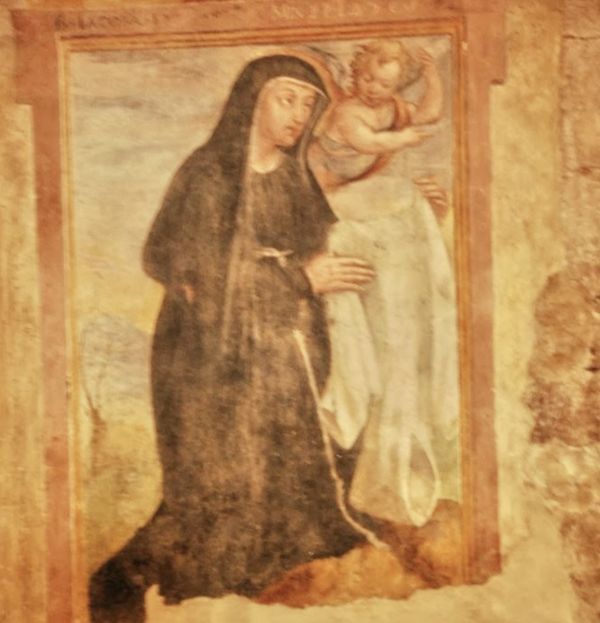In today's passage Jesus addresses His disciples and exhorts them to have faith, not to be troubled, for He goes to prepare "a place" for them.
To Thomas, who asks the way, the Lord responds by saying that He is the way, the truth and the life of the Father.
Always on his way, Francis exhorted his disciples to have faith, not to let themselves be troubled in difficult times.
He admired and extolled the faith of believers and the solid witness from wherever it came.
In the Sources there are various passages on this subject.
In the Unbiblical Rule:
"Let us therefore hold fast to the words, life, doctrine and holy Gospel of Him who deigned to pray for us to His Father and manifest to us the name of Him, saying:
"Father glorify your name [...] Make them glorious in the truth. Your word is truth [...]" (FF 62).
And Francis admired the faith of the woman Jacopa of the Septuagint*, a noble woman attached to him and to the whole fraternity.
The Sources relate:
"One day Francis summoned his companions and said:
"You know how Lady Jacopa of the Septuagint was and is very faithful and affectionate to me and to our fraternity. I believe that if you inform her of my state of health, she will consider this as a great grace and consolation.
Let her know [...] that she will send you some unbleached cloth to make a cassock [...] And send her some of that cake she used to prepare for me when I was in Rome.
This is the sweet that the Romans call mostacciolo, and it is made with almonds, sugar or honey and other ingredients.
Jacopa was a spiritual woman, a widow, devoted to God, one of the noblest and richest ladies in Rome.
Through the merits and preaching of Francis she had received so much grace from God that she seemed almost a second Magdalene, tenderly devoted to the point of tears" (FF 1657).
The brothers had written a letter to send to Donna Jacopa, but they heard a knock at the door and it was indeed her, who had come in haste to visit Francis.
Since it had been established from the earliest times that no women should enter the cloister to safeguard the honour and recollection of the religious house, a friar said to Francis:
"Father what shall we do? Should we let her come in and approach you?".
Francis replied:
"The prohibition does not apply to this lady, whom such faith and devotion has brought from so far away".
Jacopa therefore entered Francis and on seeing him began to weep....
Donna Jacopa turned to them and explained:
"Brothers, while I was praying, I was told in spirit:
Go and visit your father Francis. Hurry, do not delay, for if you delay you will not find him alive [...]" (FF 1657- Perugina Legend).
So Francis, now close to passing away, had the joy of the testimony of a great faith from this noble woman.
And near her Easter she seemed almost to say to her own:
«Let not your hearts be troubled. Believe in God and believe in me» (Jn 14:1).
He too, in the footsteps of Christ, went to prepare 'a place' for them.
* Jacopa not of the Settesoli, but of the seven "sogli", that is, thrones or seats.
* "Iacopa de Septem soliis".
Friday of the 4th Easter wk. (Jn 14:1-6)












